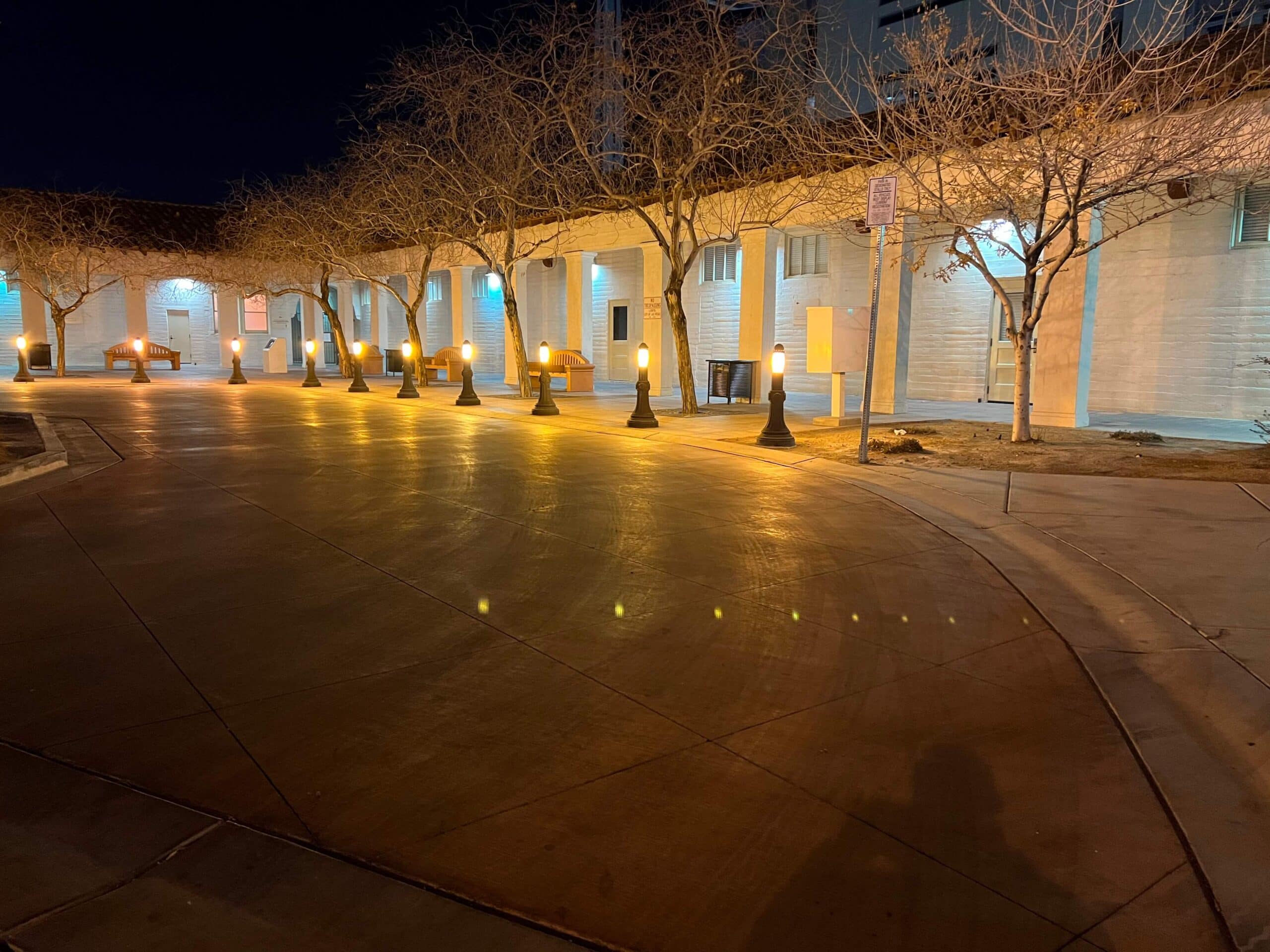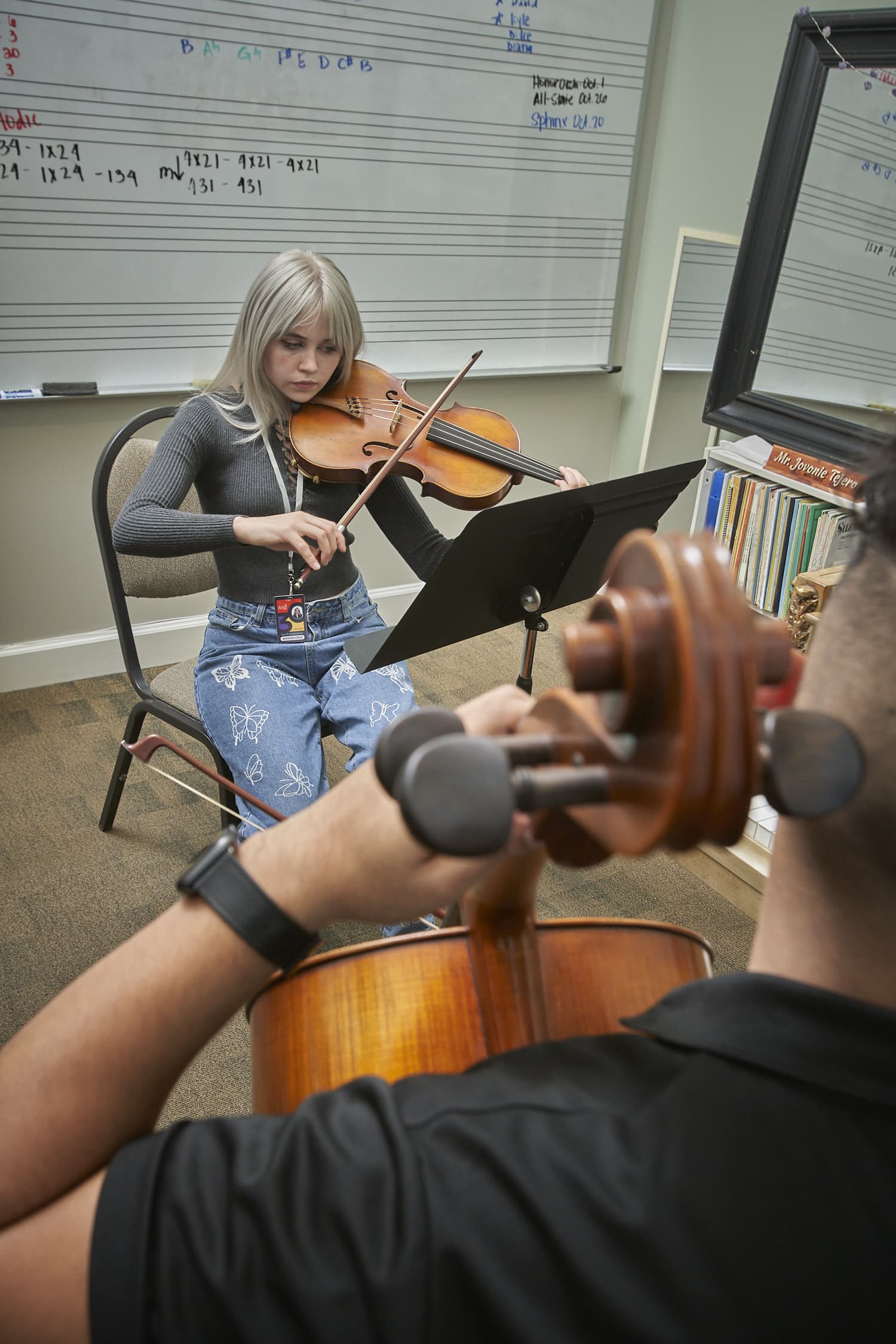Nevada School of the Arts offers the most comprehensive Suzuki program in Nevada. Our faculty of trained Suzuki instructors provide the highest quality private and group-class instruction. Suzuki instruction is available on violin, and cello.
“Perhaps it is music that will save the world.”
- Pablo Casals, cellist
Program Overview
NSA Suzuki Talent Education Program starts by enrolling parents in a parent education course (included in your tuition). Suzuki students enrolled in the Nevada School of the Arts Suzuki program must attend all group workshops in addition to their weekly private lesson. The program offers opportunities for outside performances and participation in local competitions and festivals upon the instructor’s recommendation.
Enrollment in the Suzuki Talent Education Program includes:
- Weekly private lessons
- Weekly group classes (workshops) based on the student’s level and age
- Graduation book exams (after completion of each book, students will be able to perform their repertoire and receive a written evaluation from Suzuki faculty members). Students receive special trophies after their successful completion of the book repertoire and examination.
- Annual Awards Recital
- Participation in workshops with guest clinicians
- Community Performances
- Competitions and Festivals (fees vary for each event since they are not organized by NSA)
- Students also have the privilege of working with highly trained staff accompanists at a nominal cost for recitals and competitions and free of charge during workshops and performances
Faculty
Suzuki Violin:
Tanya Hambourg*, Mary Straub, Kelly Wilcock
Suzuki Cello:
Amanda Andreasen, Robin Reinarz*, Tony Rodriguez*, Lindsey Springer
* Group Class Instructors
Students studying with Suzuki Faculty and are in Violin Books I-V or Cello Books I-III and are 4-10 years of age should be enrolled in the NSA Suzuki Talent Education Program.
New for 2024-2025
Intermediate Cello Choir
For Cellists at Suzuki Book 3 or 4 Level
Tuesdays 4:30
16 Classes
Tuition: (same as above)
No Audition Required
| 30 MIN. LESSON | 45 MIN. LESSON | 60 MIN. LESSON | NON-NSA STUDENTS* |
|---|---|---|---|
| $840 / semester | $1160 / semester | $1400 / semester | $275 / semester |
|
|
|
* Students not taking lessons with an NSA faculty member |
Parent Perspective
Parents whose children are involved in a Suzuki program throughout the country are enthusiastic about the benefits for their children and their whole families. In addition to instilling a love of music, the Suzuki approach puts emphasis on the development of the child’s character.
“This is not just music education. The long-term effects on the family are positive and far-reaching,” says Pam Brasch, Executive Director of the SAA. “It teaches a child cooperation, self-esteem…so many important qualities that children are not getting otherwise.”
Students in many programs comment on the importance of friendships they develop and the chance to share musical experiences with other Suzuki students. They enjoy the sense of accomplishment that comes from working at something worthwhile and doing it well.

Following World War II Dr. Shinichi Suzuki developed the theory that all children can be educated by the mother tongue method of learning.
“The main concern for parents should be to bring up their children as noble human beings. That is sufficient. If this is not their greatest hope, in the end the child may take a road contrary to their expectations. Children can play very well. We must try to make them splendid in mind and heart also.”
- Shinichi Suzuki
Above content of this page is copyrighted publication of the Suzuki Association of the Americas, Inc. © 1998.
How does Talent Education differ from other methods of teaching music to children?
Thoughtful teachers have often used some of the elements listed here, but Suzuki has formulated them in a cohesive approach. Some basic differences are:
- Suzuki teachers believe that musical ability can be developed in all children.
- Students begin at young ages.
- Parents play an active role in the learning process.
- Children become comfortable with the instrument before learning to read music.
- Technique is taught in the context of pieces rather than through dry technical exercises.
- Pieces are refined through constant review.
- Students perform frequently, individually and in groups.


